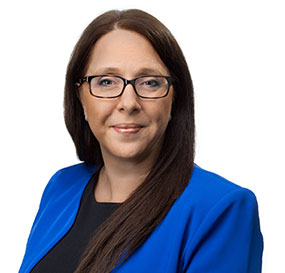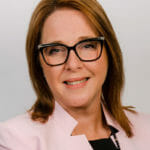
In October 2019, a 28-year-old provided yet another reminder of technology’s potential implications for those age 65 and over — or, to be more accurate, his Apple watch did.
As detailed by a New Jersey television station, that device called 911 on its own when it detected James Prudenciano and his date, Paige Paruso, had tumbled over a cliff after getting lost during a hike in a wooded park. Both were, as a result, rescued, Prudenciano after suffering three fractures in his back and various bumps, bruises and scratches.
Business Insider noted that this was an example of the Apple Watch’s automatic SOS feature, which is standard in any model of the device beyond Series Four. It detects hard falls on the part of users, asks if they want to dial 911, and then does so itself if it discerns there has been no movement by one of those users.
It is not at all difficult to see how such a device might benefit seniors, given the fact that 1 in 4 Americans in that age demographic falls every year. Some 800,000 are hospitalized as a result of such incidents, and, sadly, 27,000 die from them, making it the leading cause of fatal injury among those 65 and older.
Coupled with that is the fact that seniors are showing an increased preference for smart watch-like medical-alert wearables, in no small part because they are more appealing to the eye than previous devices. This also underscores a greater point about senior tech — how a dizzying array of devices are now out there, as companies seek to take advantage of the so-called “Longevity Economy,” as Richard Caro, Ph.D., co-founder of a company named Tech-Enhanced Life, labelled it in a recent podcast with Dr. Leslie Kernisan, a geriatrician at the University of California San Francisco’s Medical Center.
The active aging industry
The Consumer Technology Association gave it another name — the active aging industry — and predicted that it will be worth some $30 billion by 2022, three times more than today. This results in the ultimate caveat emptor for seniors — i.e., let the buyer beware. As there is so much tech on the market, it becomes difficult to discern what is truly useful, and what will wind up in a dresser drawer after week.
Certainly there are signs that seniors are increasingly tech-savvy, none more than the fact that 4 in 10 in that age bracket now own cellphones, twice as many as in 2013. But greater awareness is always a worthwhile goal, for them and their caregivers.
Caro has been among those endeavoring to help in that regard, by forming meetings of seniors called Longevity Explorers largely in the San Francisco Bay Area, but also in Providence, RI. There are two types of meetings, he told Kernisan — those in which participants discuss tech developments and challenges, and those in which seniors offer input to companies in the process of developing new products.
Caro, a physicist by trade, turned his attention to senior tech within the last five or six years, following a conversation with a 92-year-old woman in which she told him that she missed “being useful” — a common refrain among American seniors, he discovered. As he told Kernisan:
“There’s this large demographic with all this accumulated wisdom, and we’ve really sidelined them a little bit. And so, once I realized this and this became a recurring theme, I thought to myself, ‘That’s terrible. What a waste for everybody. What a waste for the people, and what a waste for society.’ ”
Enriching seniors lives’
He formed Longevity Explorers soon after, and it is in those meetings that seniors discuss such things as voice-activated virtual assistants like Amazon’s Alexa and Apple’s Siri — how they can inform, entertain and in some ways provide companionship — as well as ride-sharing apps like Uber and Lyft, which give the 65-and-over set some degree of freedom, if they are unable to drive themselves.
Sometimes, Caro added, the tech isn’t even all that technical. One meeting saw participants compare various jar openers, devices that take on greater importance with seniors, who can lack grip strength or have trouble gaining the proper leverage to accomplish the task at hand. That compelled Caro to go out and make the online purchase of 20 to 30 openers, affording participants the opportunity for further examination and comparison. And in general, he told Kernisan:
“The common thread is that people often go away with much more insight about the thing they care about than they started.”
And again, that’s the bottom line — understanding — because there is so much to consider in so many areas. Besides safety (as with the Apple Watch) and convenience (as with Alexa/Siri, Uber/Lyft, etc.), tech has greatly impacted healthcare, as has been shown at The Allure Group, a network of six New York City-based skilled nursing facilities. We feature a remote monitoring system known as EarlySense, as well as a separate monitoring system for cardiac patients called TelemetRYK. Moreover, we employ robotics to aid in patients’ rehabilitation from various disorders, and a virtual reality-based program, Jintronix, for those specifically recovering from stroke. And finally, we make use of electronic medical records (EMR).
Caro writes that in addition to extending the lives of seniors, tech also enables them to function at a higher level, and for a longer period of time, than otherwise might be possible — that indeed it forestalls functional decline and enables them to continue to perform activities of daily living (ADLs) like dressing, eating and using the toilet, as well as instrumental activities of daily living (IADLs) like driving, preparing meals and doing housework. HomeCare Magazine reiterated how valuable medical-alert systems and virtual assistants can be, particularly for seniors who choose to age in place, while also mentioning caregiving robots and systems that offer medication reminders.
Certainly, though, other developments lie just beyond the horizon, and it seems certain that it will not require a literal stumble (as in the case of the Apple Watch) to discover their application to those 65 and over.
Melissa Powell is COO of The Allure Group, a network of six New York City-based skilled nursing facilities.




